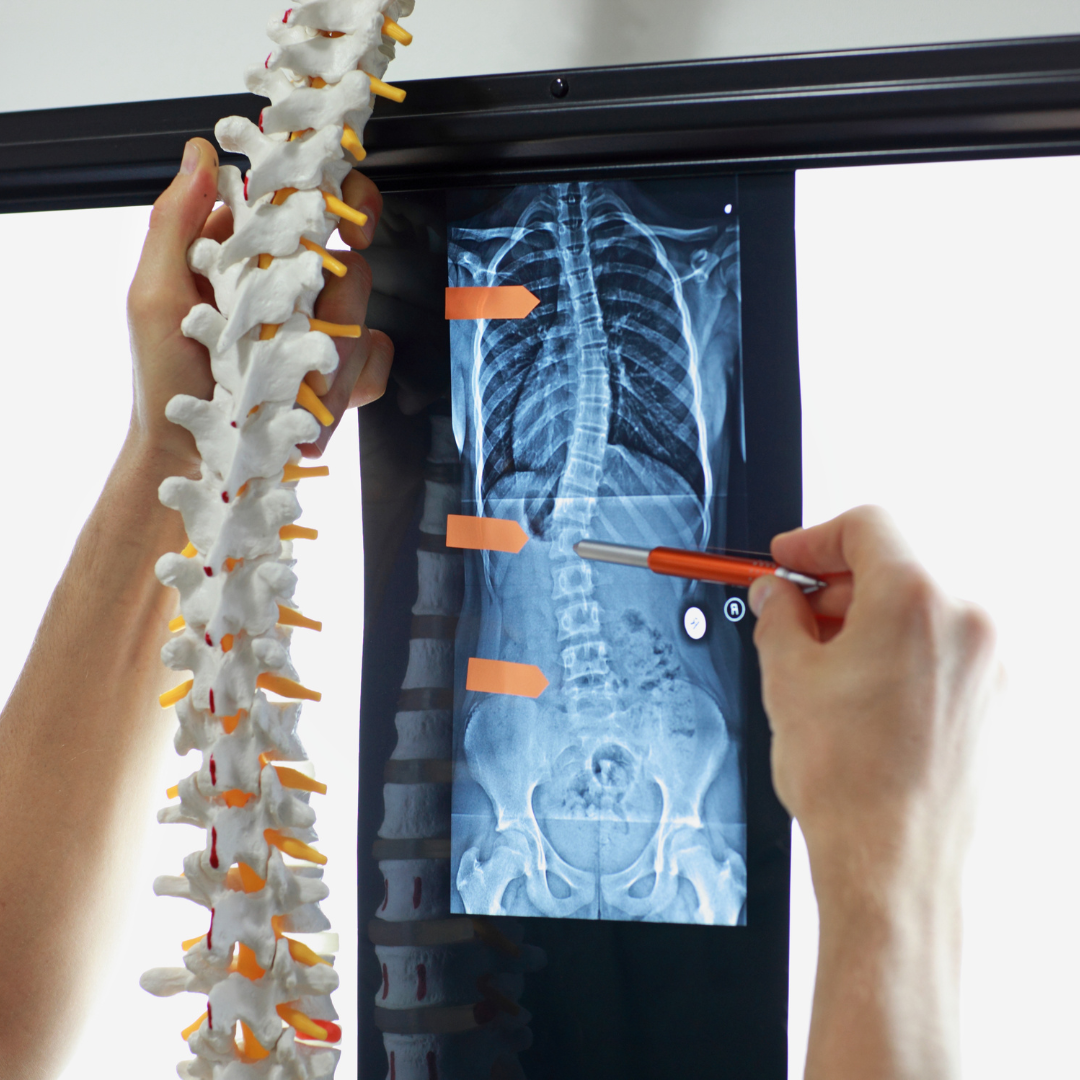
Scoliosis, a condition characterized by an abnormal lateral curvature of the spine, affects millions of people worldwide. At Iowa Ortho, we aim to provide comprehensive care and education to those affected by this condition. In this blog, we will explore the causes, symptoms, diagnosis, and treatment options for scoliosis, helping you better understand and manage this spinal disorder.
What is Scoliosis?
Scoliosis is a condition where the spine curves to the side, often forming an “S” or “C” shape when viewed from the back. This curvature can occur in different parts of the spine, including the thoracic (upper back), lumbar (lower back), or both regions. While mild scoliosis might not cause noticeable symptoms, more severe cases can lead to discomfort, pain, and even respiratory issues due to the compression of the lungs.
Causes of Scoliosis
The exact cause of scoliosis is often unknown, leading to its classification as idiopathic scoliosis. However, several factors can contribute to its development:
- Genetics: Scoliosis tends to run in families, suggesting a genetic component.
- Neuromuscular Conditions: Disorders such as cerebral palsy or muscular dystrophy can result in scoliosis due to muscle imbalance.
- Congenital Scoliosis: Some individuals are born with spinal deformities that cause scoliosis.
- Degenerative Scoliosis: In adults, scoliosis can develop due to the degeneration of spinal discs and joints, often associated with aging.
Symptoms of Scoliosis
The symptoms of scoliosis vary depending on the severity of the curvature. Common signs include:
- Uneven shoulders or hips
- One shoulder blade more prominent than the other
- Asymmetrical waist
- Leaning to one side
- Back pain, especially in adults
In severe cases, scoliosis can lead to respiratory issues and cardiovascular problems due to the compression of the chest cavity.
Diagnosing Scoliosis
At Iowa Ortho, we use a combination of physical examinations and imaging techniques to diagnose scoliosis. During a physical exam, our specialists will look for signs of asymmetry in the shoulders, hips, and back. We often use the Adam’s Forward Bend Test, where the patient bends forward, allowing us to observe any abnormal curvature.
Imaging techniques such as X-rays, MRI, and CT scans are crucial for confirming the diagnosis and assessing the severity of the curve. These images help us determine the appropriate treatment plan tailored to the patient’s specific condition.
Treatment Options for Scoliosis
Treatment for scoliosis depends on the severity of the curvature, the age of the patient, and the potential for progression. At Iowa Ortho, we offer a range of treatment options:
- Observation: For mild scoliosis, especially in children and adolescents, regular monitoring is essential to track the progression of the curve.
- Bracing: In growing children with moderate scoliosis, bracing can help prevent further curvature. The brace must be worn as prescribed to be effective.
- Physical Therapy: Exercises and physical therapy can help improve posture, strengthen the muscles around the spine, and alleviate pain.
For severe scoliosis, surgery may be necessary. While Iowa Ortho does not have a doctor that performs this operation, we are happy to refer to a doctor that does.
Living with Scoliosis
Living with scoliosis can be challenging, but with the right support and treatment, individuals can lead active, fulfilling lives. At Iowa Ortho, we emphasize a holistic approach, providing not only medical treatment but also emotional and psychological support to our patients. Education and awareness are key components of our care, helping patients and their families understand and manage scoliosis effectively.
Scoliosis is a complex condition that requires a comprehensive approach to diagnosis and treatment. At Iowa Ortho, our dedicated team of specialists is committed to providing the highest standard of care, ensuring that each patient receives personalized and effective treatment. If you or a loved one is affected by scoliosis, don’t hesitate to reach out to us for expert guidance and support. Together, we can navigate the journey to better spinal health.
For more information or to schedule a consultation, contact Iowa Ortho today.
